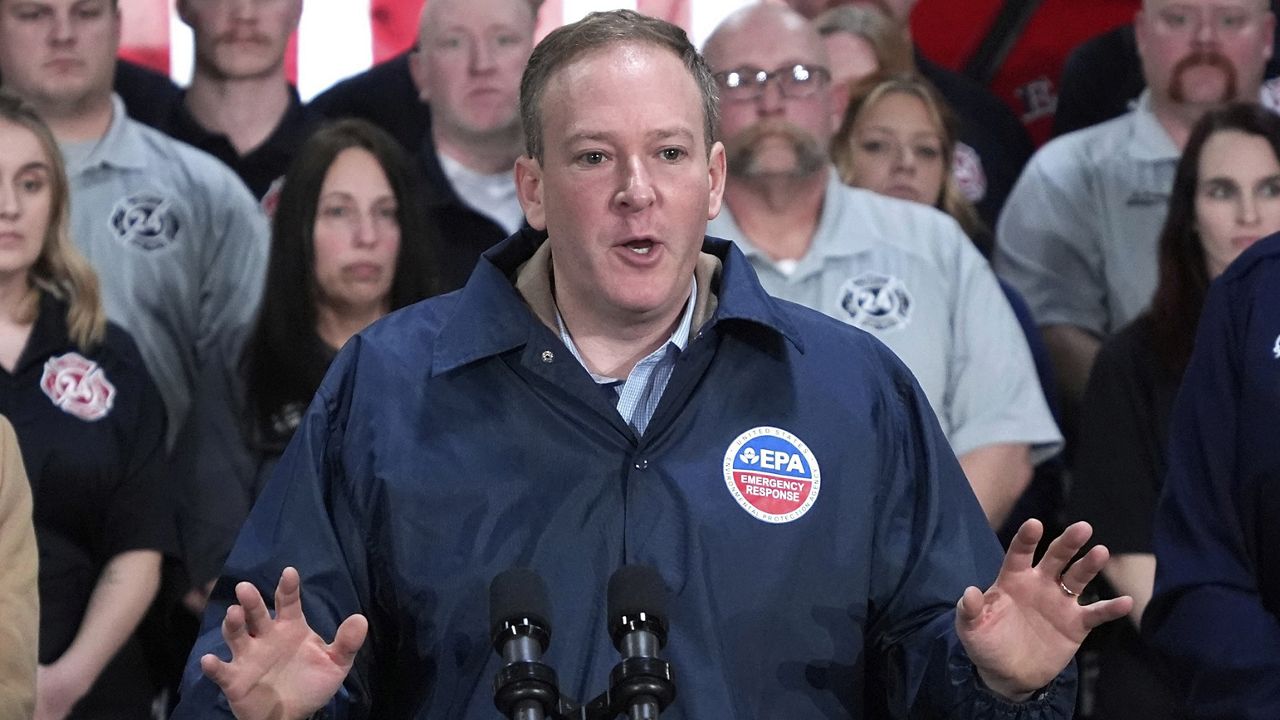State Democrats on Tuesday proposed alternative changes to the state's Medicaid program they want in the next budget to evade Gov. Kathy Hochul's proposed $1.2 billion cuts to long-term and home care, nursing homes, staff wages and other services.
Hochul's proposed cuts to Medicaid are expected to remain a focal point of budget negotiations, with dueling rallies held in the state Capitol to pose alternatives to the governor's proposal and prevent changes to care that New Yorkers depend on.
Home care allows Ulster County resident Sage Jobsis to do things most people take for granted.
Jobsis, 43, of Rosendale, uses a wheelchair after being diagnosed with multiple sclerosis at age 30. Home care aides allow her to live at home with her partner, cook and eat what she likes and listen to music with her friends — a quality of life she fears could be in jeopardy if Hochul's proposed cuts are included in the state's final spending plan.
"We've been trying so hard for so long to take any step forward and we felt last year like we had taken a step forward, and now, it's being pulled out from under us like a rug," Jobsis said.
Jobsis joined hundreds of advocates in the Capitol on Tuesday to push for legislation in the final budget to end the state giving billions of dollars to insurance companies that manage home care.
In 2011, the state privatized its home care system, transitioning away from a traditional fee-for-service model. The change shifted billions of state dollars to large, corporations and for-profit insurance companies, with the state paying $5.5 billion to 24 private insurance companies that manage home care since 2020, according to the labor union 1199 SEIU.
They say the Home Care Savings & Reinvestment Act would remove the middle man from managed care and save $3 billion annually, and about $32 billion over the next decade.
Lawmakers stood with hundreds of health workers with labor union SEIU 1199 expressing their fury over the governor's proposed changes to Medicaid, which reduces $400 million to long-term care services, discontinues wage parity within Medicaid's Consumer Directed Personal Assistance Program to save about $200 million, among other changes.
"It devalues us while increasing the value of for-profit insurance companies, which is not where I think our value as New York needs to go," Jobsis said.
Many state Democrats are displeased with Hochul's proposed cuts to Medicaid, and are working to garner support as they put together their counter budget proposals.
Sponsor Senate Health Committee chair Gustavo Rivera says there's many other other options instead of cutting Medicaid.
"We are in a moment where I do not believe that cutting the system is the way we need to go," Rivera said. "We should be investing on in the system to provide stability, and there are options on the table in which to do it."
But Hochul isn't convinced that's the most effective way to reduce ballooning Medicaid costs, and spending must get under control in all areas as the state program has grown nearly 40% in the last three years.
Hochul said Tuesday last year's 7.5% Medicaid spending increase cannot be sustained, especially after years of zero increases under former Gov. Andrew Cuomo.
"That's why we're looking at efficiencies, we're looking at insurance requirements," she told reporters in Albany. "I'm looking at the health care system holistically. ...I'm the governor of the state of New York. I have to inject common-sense policies."
Meanwhile at another event in the Capitol, lawmakers joined more than 200 faith leaders and religious organizations calling for the Legislature to fully fund Medicaid, seeking a higher reimbursement rate for hospitals and health providers as the state pays hospitals 30% less than the cost of the care they provide.
Medicaid typically serves low-income and disadvantaged populations.
Several Democrats said they are perplexed about continuing to underfund Medicaid, which will lead to more hospitals going bankrupt or reducing services.
"To be shortchanged 30 cents on every dollar of care is not a sustainable policy," said Sen. Cordell Cleare. "It can only lead to negative health outcomes for our people."
After the rallies ended, health care workers and union leaders, recipients of care and their families lobbied lawmakers for hours Tuesday — putting on the pressure to restore Medicaid funding in the final budget.
Jobsis' mother, Sandy Petersen met and lobbied officials and plans to throughout the budget fight. She said the state must save money with Medicaid in other ways, starting with removing middle management that has made managed care less successful.
"They'll save money by doing that, it's just going to take the will to do it and to say that this structure didn't work," Petersen said.










